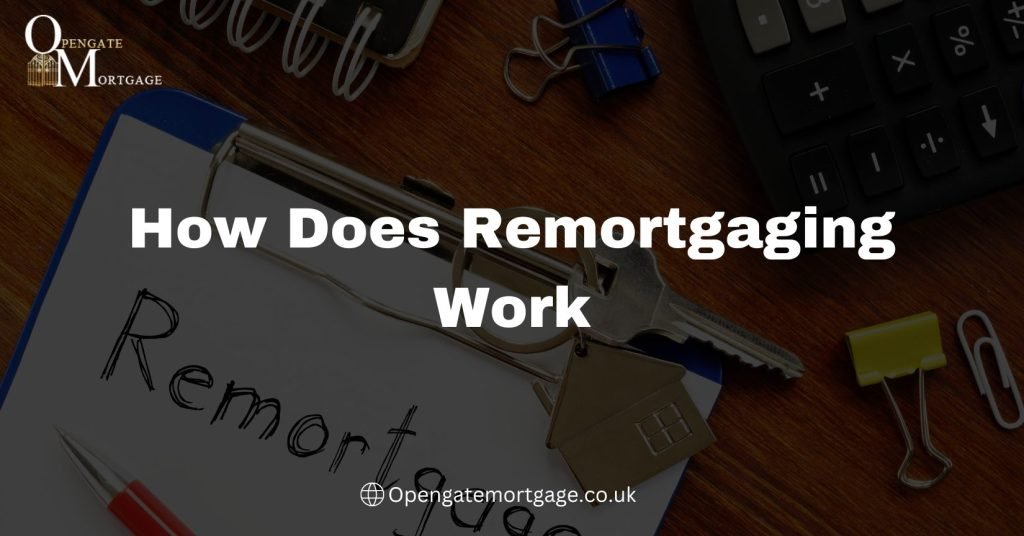The process of obtaining mortgage approval and financing for a new home can seem complicated and time-consuming. As a homebuyer, you want to understand the key steps required and get a realistic sense of the overall timeline. The short answer is that most mortgages are approved and funded within 30 to 60 days from application to closing. However, there are several factors that determine How Long Does It Take To Get A Mortgage?
Being prepared and organized, providing complete and accurate documentation, and understanding the requirements at each stage of the process will help keep things moving efficiently. With the right knowledge and the help of an experienced mortgage professional to guide you, navigating the mortgage approval process can be straightforward. The more you know upfront about what to expect, the less anxious and frustrated you’re likely to feel along the way.

Gathering Your Documentation
To obtain mortgage approval, you will need to gather important documentation to verify your identity, income, employment, assets, and liabilities.
First, you will need government-issued photo identification, such as a driver’s license or passport, to confirm your identity. You will also need documents proving your social security number.
Second, you will need to provide income statements, such as pay stubs, tax returns, W-2 or 1099 forms, and bank statements to demonstrate your income and ability to repay the loan. Lenders typically want to see 2-3 years of income documentation.
Third, you will need records of your employment, like an employment offer letter. Selfemployed individuals will need additional documents, such as business licenses, tax returns, balance sheets, and income statements.
Fourth, you will need records of your assets, such as bank statements, investment accounts, and retirement accounts to show you have funds for a down payment and closing costs. Records of any large deposits will also be required.
Finally, you must disclose all your current debts and liabilities, including credit cards, auto loans, student loans, child support, alimony, and any other payments to demonstrate your ability to take on additional debt.
Providing complete and accurate documentation in a timely manner is key to obtaining mortgage approval. While the process can take 4 to 8 weeks on average, preparing well in advance and working closely with your loan officer and real estate agent can help expedite approval. With organization and patience, you will be well on your way to getting the keys to your new home.
Applying for a Mortgage Pre-Approval
To get pre-approved for a mortgage, you will need to provide documentation to verify your income, employment, assets, and liabilities. The pre-approval process typically takes between 2 to 4 weeks to complete.
First, you will need to submit pay stubs, tax returns, W-2s, and bank statements to show your income and ability to make payments. Provide at least 2 years of tax returns if self-employed. Calculate your debt-to-income ratio to ensure it is within the lender’s guidelines.
Next, authorize the lender to pull your credit report to review your credit score, credit history, and see if there are any errors to dispute. Check your own credit report in advance and take steps to improve your score if needed. The higher your score, the better your chances of approval and lower interest rate.
You will then go through an underwriting review where the lender evaluates all your documentation to determine your eligibility and how much you can borrow. Be prepared to provide explanations for any red flags. Obtain letters of explanation for issues like late payments, job gaps, etc.
Once approved, you will receive a pre-approval letter stating the maximum mortgage amount. This letter can be used when submitting offers to sellers to show you are a serious, qualified buyer. However, a pre-approval is not a guarantee of a mortgage as the final approval depends on the property appraising for at least the purchase price.
The pre-approval process requires time and patience, but being well-prepared can help expedite the turnaround. Following the necessary steps will put you in a good position to get approved for a mortgage and achieve the goal of homeownership. Stay in close contact with your lender to ensure all documentation is submitted and address any questions promptly.
Shopping for the Best Mortgage Rates
As you begin shopping for a mortgage, comparing interest rates from different lenders is key. Interest rates can vary significantly between lenders, so checking with multiple sources is important to find the most competitive rate for your situation.
Check Rates from Major Banks and Credit Unions
Large banks and credit unions are a good place to start when rate shopping. Compare fixed and adjustable rates for different loan terms like 15-year or 30-year mortgages. Consider your timeframe for paying off the loan and how long you plan to stay in the home. A shorter-term mortgage usually has a lower interest rate but higher monthly payments. An adjustable-rate mortgage may start with an attractive rate but could increase significantly later.
Check Online Mortgage Lenders
Online lenders and mortgage brokers also provide competitive rates. Companies like Quicken Loans, LoanDepot, and AmeriSave allow you to check rates online without impacting your credit score. Compare their rates to major banks to find the lowest option. These lenders handle the entire mortgage process online, from application to closing, for a seamless experience.
Compare Rates from Multiple Sources
The mortgage you choose will depend on factors like your credit score, income, loan-to-value ratio, and property type. But in general, comparing rates from at least three to five different lenders is recommended. Minor differences of even one-eighth to one-quarter of a percent in the interest rate can save you thousands of dollars over the life of the loan.
Once you’ve compared the rates and terms that meet your needs, lock in the lowest option as rates can change daily. The lender will walk you through the remaining steps to get fully approved and close on your new home mortgage. While the process can take 30 to 60 days, coming in with a pre-approval and all your documentation ready will help speed up your approval for the best mortgage rate.
Finalizing Your Mortgage Application
Once you have submitted all necessary documentation for your mortgage application, the final approval process begins. This typically takes between 2 to 4 weeks, depending on the mortgage lender and type of mortgage you are applying for. During this stage, your mortgage application goes through an underwriting review to determine if the loan will be approved.
The underwriter will evaluate your income, employment, assets, debts, and credit history to ascertain whether you qualify for the mortgage amount and terms you have requested. They need to ensure you have the ability to repay the loan. The underwriter may ask for additional documentation to verify information on your application. It is in your best interest to provide any requested materials promptly to avoid delays.
If the underwriter requires clarification or has questions about your application, they will issue a “suspense” and request further details from you, your employer, bank, or other parties. You must respond to any suspense items within the timeframe indicated to progress your application. Failure to do so can negatively impact your approval.
Once all underwriting conditions have been satisfied, the underwriter will make a final decision on your mortgage application. There are three outcomes: approved, denied, or approved with conditions. An approval means your application has been cleared to proceed to closing or funding. A denial means your application did not meet the necessary criteria. Approval with conditions means minor issues need to be addressed before final approval and closing.
Working closely with your mortgage officer and underwriter and providing requested materials in a timely manner can help expedite the final approval of your mortgage application. While the process may seem tedious, your due diligence and cooperation will pay off once you receive the approved notice and can proceed to settling on your new home.
Closing on Your New Home
Closing on your new home typically takes between 30 to 60 days after your offer is accepted, depending on various factors. During this time, several important steps need to be completed to officially transfer ownership of the property to you.
To begin, you will work with your lender and a title company to handle the legal documentation and logistics of the closing process. The title company will conduct a title search to verify the legal ownership of the property and check for any liens or encumbrances. They will also coordinate with your lender to sign official mortgage documents like the promissory note and security instrument (also known as a mortgage or deed of trust).
In addition, an appraisal will be conducted by an appraiser to determine the property’s market value and ensure it meets the lender’s requirements for the loan amount. You will need to provide various personal and financial documents to your lender to verify your income, employment, assets, and other information listed on your loan application.
Before closing, you will likely conduct a final property inspection. If any significant issues were uncovered during earlier inspections, the seller may have made necessary repairs or provided a credit for you to handle needed fixes. Make sure any agreed upon repairs or credits are noted in the purchase agreement.
At the closing or settlement, you will sign official paperwork, provide certified funds for your down payment and closing costs, and get the keys to your new home! Take time to thoroughly review and understand all documents before signing on the dotted line. Once complete, the property is officially yours.
Congratulations, you now have a place to call home! The closing process can be complicated, but by working closely with your lender and real estate agents, you will navigate it successfully. Before you know it, you’ll be moved into your new abode.
Conclusion
Overall, the mortgage approval process can take between two to eight weeks on average, depending on several factors within and outside of your control. While the waiting period may seem lengthy, taking the necessary time to submit a complete, accurate application and provide all required documents will help streamline the underwriting review and approval. Patience and persistence pay off, as you’ll soon have the keys to your new home.
Though mortgage rates and housing inventory fluctuate, your dream of homeownership is within reach if you start the preapproval process today. With the right preparation and mindset, you’ll be moving into your new place before you know it. The rewards of homeownership far outweigh any temporary frustrations from the approval process. Stay focused on the finish line, and your patience will be well worth it.
People Also Ask Questions about How Long Does It Take To Get A Mortgage?
How long does it typically take to get a mortgage?
The mortgage process duration can vary depending on several factors, but on average, it takes anywhere from 30 to 45 days. However, this timeline can be influenced by various elements, including the complexity of the application, the responsiveness of the parties involved, and the specific lender’s processing times.
What factors can impact the timeline for obtaining a mortgage?
Several factors can influence how long it takes to get a mortgage, such as the borrower’s financial situation, credit score, the property type being financed, the lender’s workload, and the overall efficiency of communication between all parties involved.
What are the key steps involved in the mortgage application process?
The mortgage application process usually involves these main steps: prequalification/pre-approval, gathering documentation, submitting the application, the lender’s underwriting process, home appraisal, loan approval, and finally, closing the loan.
How can I speed up the mortgage application process?
To expedite the mortgage process, make sure to have all necessary documentation readily available, respond promptly to any requests from your lender, and be prepared to provide additional information if required. Maintaining good communication with all parties involved can also help to speed up the process.
What documents are typically required during the mortgage application process?
Commonly requested documents include proof of income (pay stubs, tax returns), bank statements, identification, employment verification, credit history, and details about the property being financed.







